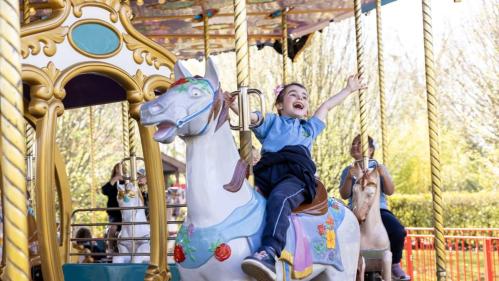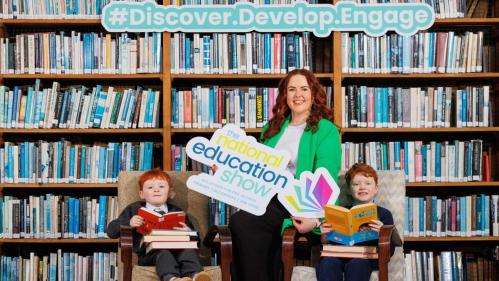School can be a minefield of social challenges for a lot of children. Some children thrive socially in school but most will at one time or another face at least some difficulties with their peers.
Here is a list of some of the most common peer problems your child may face at school:
Teasing and bullying
Bullying and teasing are still common in the school play ground. These issues often don’t occur until after age seven or eight but research unfortunately shows that at least three out of five fifth and sixth class students have experienced or participated in bullying in schools.
Loneliness
For some children, making friends can present a daunting challenge. Parents can be concerned if their children don’t have a big group of friends. Making friends can be more challenging for some students than for others. However, the amount of friends your child has is not as important as the depth of the friendships. It’s better to have a small group of close friends rather than a large number of shallow friendships. Good friendships aren’t formed overnight; they take time and attention to develop. Arrange regular play dates to ensure friendships are developed.
Ostracism
Unfortunately, there are some children who will find themselves being intentionally left out of activities, there may or not be teasing and bullying involved. This can be particularly challenging, not just in the playground but also when birthday invites are being issued. Being excluded can be very upsetting for a child. If you think that your child is being left out, be there to support her, encourage alternative friendships or consider speaking to your child’s teacher.
Gender Issues
Throughout primary school, boys and girls are beginning to learn about one another. For the most part, boys and girls will choose to play separately. However, by around age nine, some children are beginning to become increasingly aware of the opposite sex and may even start to call each other boyfriend and girlfriend. While this is often harmless, in many cases, having a boyfriend or girlfriend can cause significant social challenges such as teasing and the spreading of rumours. Most parents and teachers will agree that boyfriend and girlfriend relationships in primary school should be discouraged.
Being Cool… or not
At around age nine, children will have developed an idea of what is cool and what isn't. A lot of this is controlled by the media. If your child doesn’t have the latest gadget or hasn’t seen the latest must-see movie then they may be teased or ostracised. This doesn’t mean you should bow to pressure and indulge your child in every latest craze, however sensitive parents will most likely try to find a solution that is both mutually beneficial to you and your child.
Poor performance
Children who don’t perform well academically (or in other activities such as sports) may experience exclusion. This is a challenge that can be overcome using strategies outlined.
Marginalising Minorities
Children who are obviously different to the majority of students because of race, religion or even socio-economic status, can often suffer socially because there is a belief that they are different to everyone else. These issues can often be experienced most keenly by girls from the age of ten to twelve, although boys can also suffer.
Here is a list of some of the most common peer problems your child may face at school:
Teasing and bullying
Bullying and teasing are still common in the school play ground. These issues often don’t occur until after age seven or eight but research unfortunately shows that at least three out of five fifth and sixth class students have experienced or participated in bullying in schools.
Loneliness
For some children, making friends can present a daunting challenge. Parents can be concerned if their children don’t have a big group of friends. Making friends can be more challenging for some students than for others. However, the amount of friends your child has is not as important as the depth of the friendships. It’s better to have a small group of close friends rather than a large number of shallow friendships. Good friendships aren’t formed overnight; they take time and attention to develop. Arrange regular play dates to ensure friendships are developed.
Ostracism
Unfortunately, there are some children who will find themselves being intentionally left out of activities, there may or not be teasing and bullying involved. This can be particularly challenging, not just in the playground but also when birthday invites are being issued. Being excluded can be very upsetting for a child. If you think that your child is being left out, be there to support her, encourage alternative friendships or consider speaking to your child’s teacher.
Gender Issues
Throughout primary school, boys and girls are beginning to learn about one another. For the most part, boys and girls will choose to play separately. However, by around age nine, some children are beginning to become increasingly aware of the opposite sex and may even start to call each other boyfriend and girlfriend. While this is often harmless, in many cases, having a boyfriend or girlfriend can cause significant social challenges such as teasing and the spreading of rumours. Most parents and teachers will agree that boyfriend and girlfriend relationships in primary school should be discouraged.
Being Cool… or not
At around age nine, children will have developed an idea of what is cool and what isn't. A lot of this is controlled by the media. If your child doesn’t have the latest gadget or hasn’t seen the latest must-see movie then they may be teased or ostracised. This doesn’t mean you should bow to pressure and indulge your child in every latest craze, however sensitive parents will most likely try to find a solution that is both mutually beneficial to you and your child.
Poor performance
Children who don’t perform well academically (or in other activities such as sports) may experience exclusion. This is a challenge that can be overcome using strategies outlined.
Marginalising Minorities
Children who are obviously different to the majority of students because of race, religion or even socio-economic status, can often suffer socially because there is a belief that they are different to everyone else. These issues can often be experienced most keenly by girls from the age of ten to twelve, although boys can also suffer.
Skin colour or ethnicity, like religious habits, can never and should never be changed to suit the minority. Tolerance should instead be promoted and insisted upon by parents and schools to help the development of positive peer relationships.





